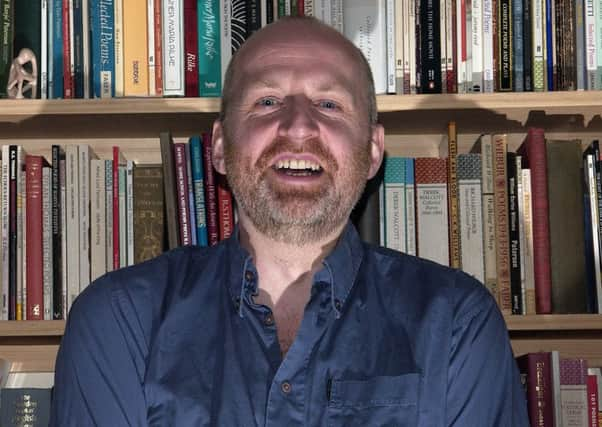Review: StAnza Festival, St Andrews, Fife


Every year in early March, the ancient streets of St Andrews come alive with poetry for StAnza, Scotland’s international poetry festival, a diverse and vibrant celebration of all things poetic. This year’s festival was the 18th StAnza, and there was an unmistakable sense a coming of age, a vibrant, continually refreshed conversation between poets, both in the present moment and with StAnzas past.
Many StAnza regulars remember being in the Byre Theatre in 2010 to hear Seamus Heaney in conversation with Dennis O’Driscoll. Incredible, within a handful of years, both were dead: O’Driscoll at the end of 2012 and Heaney in August 2013, but the conversation goes on.
Advertisement
Hide AdThomas Lynch, acclaimed American poet and funeral director quoted WH Auden, that art (or poetry) is “what we do to break bread with the dead”. Giving the StAnza Lecture, he moved seamlessly between poetry and prose, recalling Heaney through his later poems, how he wrote with moving simplicity about the friends who helped him when he suffered a stroke in 2006. His own poetic dialogue with Heaney began when he wrote a poem for the Laureate’s 65th birthday, and ended when he rode in the hearse at his funeral on the three-hour journey from Dublin to Bellaghy, where he was buried.
The theme of “everyday miracles” carried out by “those who have known us all along” was taken up later that day by a very different poet, the charismatic Jo Bell, whose poetry collection ‘Kith’ celebrates just such friends. And Irish poet Matthew Sweeney took up the elegiac refrain reading on Centre Stage with Lynch that evening, bringing us his elegies for both Heaney and O’Driscoll.
StAnza’s Past and Present strand encourages the remembrance of poets past. Former director of StAnza, Brian Johnstone, returned to the festival this year to read his own work, and to conjure the spirit of Wendell Kees, an American poet of the 1940s whose darkly lyrical poems and mysterious (still unsolved) disappearance at the age of 55 haunts his own work.
An engaging breakfast discussion debated the poetry of the city, proposing that poetry’s relationship with the urban is still a troubled one, with poets still inclined to flee to the bucolic and pastoral as the Romantics did.
StAnza 2016’s other theme, Body of Poetry, also provoked lively conversations - and a experiment where the audience joined in a “corporate” reading. Valerie Laws, who has been poet in residence in pathology musems and dissection labs, writes of the human body and its wonders and frailties with an unflinching eye and a compassionate heart. Andrew McMillan, whose award-winning first collection, Physical, deals with masculinity in the 21st century, shared a platform with Fiona Benson, who read searing poems about miscarriage, birth and motherhood.
This year’s Stanza had a particular emphasis on conversation across languages, particularly the German language. Parliament Hall was packed to the seams for a translation event featuring work from the VERSschmuggel programme which paired six Scottish and six German poets to translate one another’s work at the Berlin Poetry Festival.
Advertisement
Hide AdIn a flowing dialogue, Anna Crowe and Odile Kennel read their translations of one another’s work so fluidly one started to wonder which was translation and which original, and Don Paterson read his translations of Michael Donhauser who was sadly unable to attend himself due to illness. .
Hearing poetry in a language you don’t understand is a particular pleasure, according to poet Clare Best, because one experiences it bodily, like music. Such was the case with German poet Nora Gomringer, performing at the Saturday night Centre Stage reading with jazz drummer Philipp Scholz, bringing sound poetry and stunning delivery.
Advertisement
Hide AdIt was an evening of contrasts, Gomringer being followed by fine lyric poet Jo Shapcott. The previous evening had set up a similar juxtaposition between Lemn Sissay and Don Paterson, a consummate performer on the one hand and a lyrical and formal virtuoso on the other, reading from his collection Forty Sonnets which recently won the Costa Prize for Poetry. Even when the poets don’t converse directly, their presence on the same stage creates a conversation which lives on in the minds of the audience. StAnza finished on Sunday, but the conversations go on.